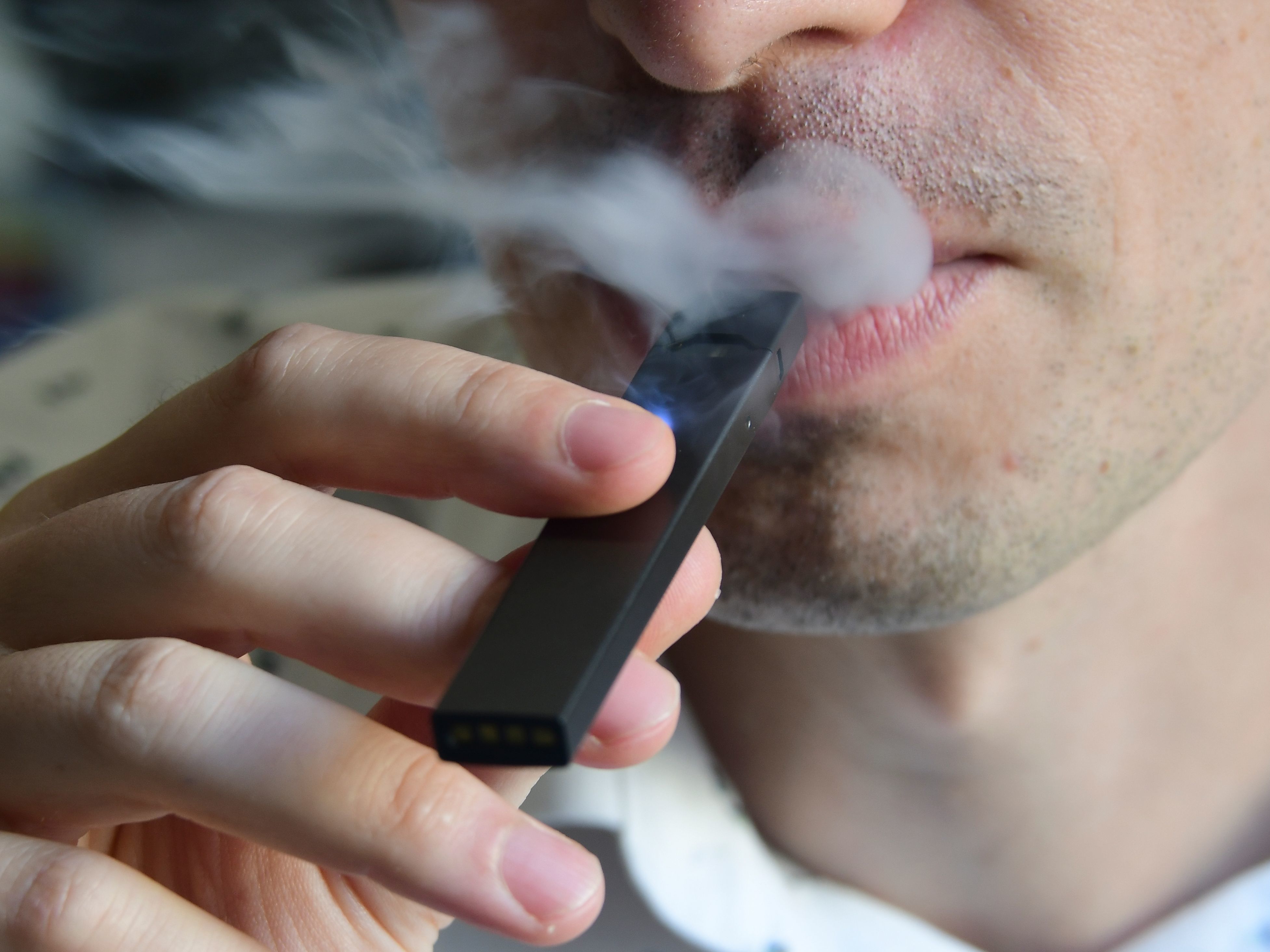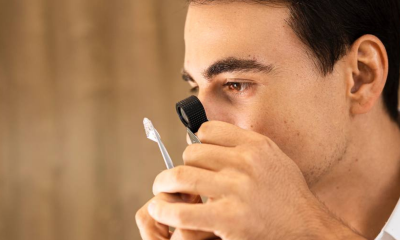BUSINESS NEWS
North Carolina AG sues e-cigarette maker Juul, says it downplayed dangers
[ad_1]
An illustration shows a man exhaling smoke from an electronic cigarette in Washington, DC.
Eva Hambach | AFP | Getty Images
North Carolina sued e-cigarette maker Juul on Wednesday, accusing the vaping company of targeting young consumers and misrepresenting the potency and danger of nicotine in its products.
It is the latest suit against the company that claims it is intentionally promoting nicotine use among underage buyers.
“JUUL targeted young people as customers. As a result, vaping has become an epidemic among minors,” North Carolina Attorney General Josh Stein said in a statement. “JUUL’s business practices are not only reckless, they’re illegal. And I intend to put a stop to them. We cannot allow another generation of young people to become addicted to nicotine.”
Juul “downplayed” the danger of nicotine in its flavored pods, the complaint alleges, saying a “typical JUUL pod is so strong and addictive that it is nearly three times the permissible concentration allowed for sale in a number of countries for people of all ages.”
Stein said the company deliberately designed its products to attract young consumers and targeted them on social media by paying influencers to promote their product. The lawsuit also claims Juul used negligent age-verification methods for online purchases, allowing young consumers to buy their products.
“Because of JUUL’s lackadaisical — and, at times, willfully blind — approach to age verification, enormous numbers of underage users have easily obtained JUUL products, often simply by ordering them online,” the lawsuit said.
Juul said in a statement that it has not seen the complaint yet. It said the company shares Stein’s concerns about youth vaping, “which is why we have been cooperating with his office and why we have taken the most aggressive actions of anyone in the industry to combat youth usage. “
The complaint cited data that said in 2017 nearly 17% of North Carolina high school students and more than 5% of the state’s middle school students reported that they had used an e-cigarette in the previous 30 days. It also said e-cigarette use among high school and middle school students across the nation skyrocketed by 78% and 48%, respectively, from 2017 to 2018.
Stein is asking the court to force the company to stop selling e-cigarettes to minors in North Carolina, limit the number of pod flavors sold in the state, cease advertising practices that appeal to young consumers and delete all customer data for any consumers under age 18.
Juul is partially owned by tobacco giant Altria and dominates the e-cigarette market. It said it has already stopped selling nontobacco and nonmenthol-based flavored pods in retail stores, “enhanced” its online age-verification process and shut down its Facebook and Instagram accounts “while working constantly to remove inappropriate social media content generated by others on those platforms.”
Juul has also pledged to invest $30 million over the next three years on research, youth and parent education and engagement and said it “strongly” advocates raising the legal tobacco-use age to 21.
Altria, which has a 35% stake in Juul, did not immediately respond to CNBC’s request for comment.
Stein’s accusations are just the latest claims that the e-cigarette maker marketed its products to young consumers, leading to a rapid increase in vaping among youths.
Last year Massachusetts Attorney General Maura Healey announced she was investigating the company for failing to stop minors from buying its products. Healey, who said the Massachusetts probe was the first of its kind, is investigating how many minors use Juul’s products and how the company monitors its age-verification system.
WATCH: Former Massachusetts AG joins Juul government affairs team
Correction: This story has been updated to correct the characterization of the data cited in the complaint on the percentages of teens who use e-cigarettes.
[ad_2]
Source link













